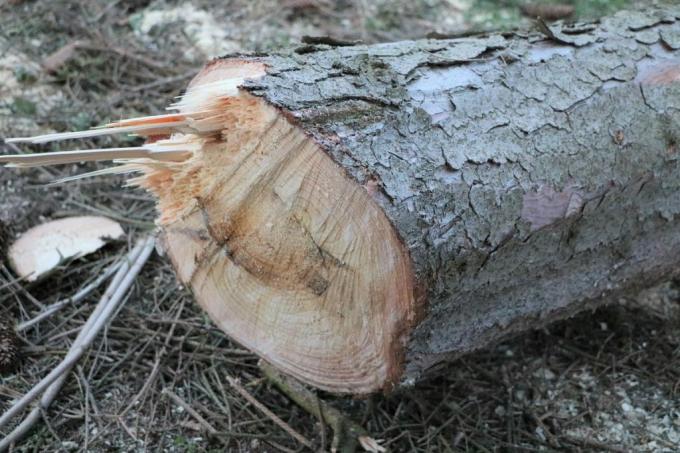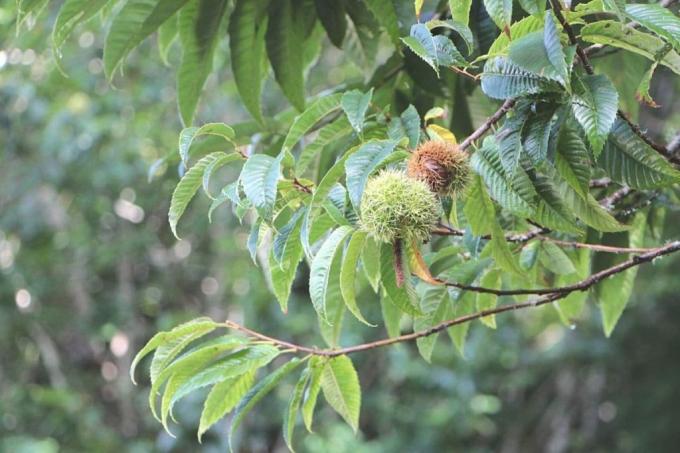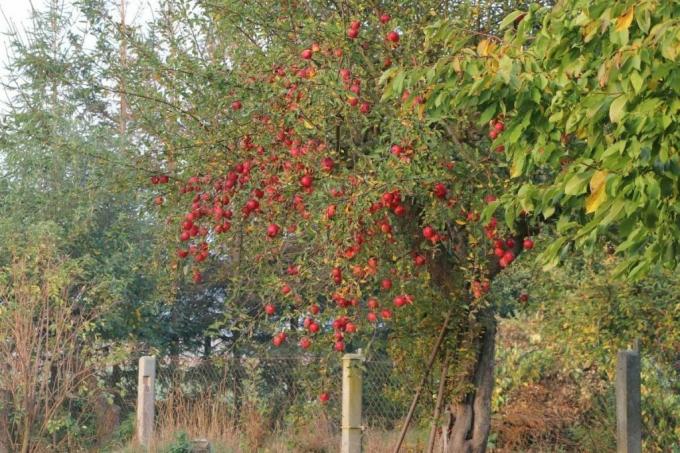
table of contents
- Chop down trees without a permit
- Fall times
- Note the trunk diameter
- Get approval
- imminent danger
- Plant a new tree
- frequently asked Questions
Sometimes it happens that an annoying tree should give way in the garden. But not everyone is allowed to simply remove it, because the tree protection ordinance normally regulates which trees can be felled and when. Are there still trees that can be felled without a permit?
In a nutshell
- Observe statutory felling and closed times for trees
- private felling is usually limited to certain sizes
- Trunk diameter as a guideline
- Obtaining a permit or Consultation with the responsible office for security is always recommended
- Don't forget to replant
Chop down trees without a permit
First of all: the readers who expect a list of trees that can be felled without permission, we have to disappoint at this point, because unfortunately there is no such thing. Instead, we encourage readers who are contemplating cutting down a tree to keep the following in mind:
- Fall times
- Trunk thicknesses
- Obtain approval or reinsure with the responsible office
Fall times
The Federal Nature Conservation Act (BNatSchG) regulates when trees can be felled or cut back. In the period from 1. March to 30th In September it is generally not allowed to fell a tree. This serves to protect animals that breed there or represent a food source for the flowers and leaves.

Conversely, outside of this time, private individuals are generally allowed Tree felling - these are felling on private property. In exceptional cases, a tree can also be felled within this period, for example if there is a special need. This particularly affects damaged trees that pose a threat to people or objects.
Note: Depending on the region, the rules can be individual, so you should have one more with every felling to be on the safe side Tree felling permit or at least consult with the responsible office.
Note the trunk diameter
Whether private tree felling is permitted without a permit also depends on the trunk diameter of the tree. Due to the federal structure of Germany, tree protection regulations are not regulated nationwide. Different legal requirements therefore apply from state to state. It is therefore possible that regional trees can be felled at any time, regardless of the trunk diameter, without a permit.
The trunk diameter is, however, also in those regions in which there is no such Sizing rules out there are an important clue as to whether it might not make more sense to adhere to to turn to a professional. Anyone who overestimates themselves when chopping down a large tree and thereby possibly endangering people or causing damage, risks a heavy penalty.
The local regulations regarding the trunk diameter are subject to strong fluctuations. As a guideline, you should use the following dimensions as a guide:
- Deciduous tree: maximum 80 cm (multi-stemmed maximum 50 cm)
- Fruit tree: maximum 150 cm (multi-stemmed maximum 100 cm)
- Conifer: maximum 100 cm (multi-stemmed maximum 60 cm)

Note: Though often cultivated as fruit trees, walnut trees fall (Juglans regia) and sweet chestnuts (Castanea sativa) under the regulations for deciduous trees.
Get approval
If it is a tree that is not allowed to be felled privately, permission must always be obtained from the office. Many garden owners only dare to take this step with great misgivings, and the authorities understand these concerns.
The following reasons have justified permits in the past:
- Tree does not fulfill any ecological function
- Inhibition of site development
- Obstruction of monument renovation measures
- Impairment of the permitted use of the property
- negative influence on other trees
- Felling is in the public interest
- Precipitation serves traffic safety
For example, diminishes one Spruce shading the yield of a fruit tree is the reason for a tree felling permit. Felling becomes difficult with so-called border trees. These are trees, the trunk of which is on two pieces of land. In order to be able to submit an application at all, the neighbor on whose property part of the tree stands must agree.

Note: It is not uncommon for such deliberate felling of border trees to end in court. The neighbor has the right to keep the tree, but the other party also has the right to have the border tree cut down.
imminent danger
If there is imminent danger, a tree felling permit is issued in most cases. This is not only the case if the tree has been damaged after a storm and thus poses a danger to people or objects, but also if the tree is sick.
Note: In the case of illness, however, many offices often still require confirmation from an expert. This is especially the case when it comes to diseases that cannot yet be recognized from the outside.
Plant a new tree
Regardless of whether you fell the tree with or without a permit, in the rarest of cases you will come without replanting of this, because most of the ordinances also stipulate that replacements are created for felled trees got to. Anyone who disregards such ordinances faces a fine that can be extremely high. Depending on the offense, up to 50,000 euros can be due. Felling a tree usually does not go unnoticed, so you should always comply with the applicable laws.

Tip: Here it is advisable to choose an easy-care wood for the new planting that will cause little or no problems in the foreseeable future.
frequently asked Questions
As a rule, the responsible environmental and nature conservation office in the place of residence provides information on this.
In this case you should contact the Environment Agency. In principle, cutting down a tree that is inhabited by animals is always forbidden. Sometimes, however, the work can be postponed or animal residents are relocated by professionals.
The price depends on many factors, such as how difficult it is to fell the tree due to nearby houses or how big the tree is. It can cost anywhere from a few hundred to several thousand euros. If you have the clippings transported away and disposed of, costs will also be incurred.
